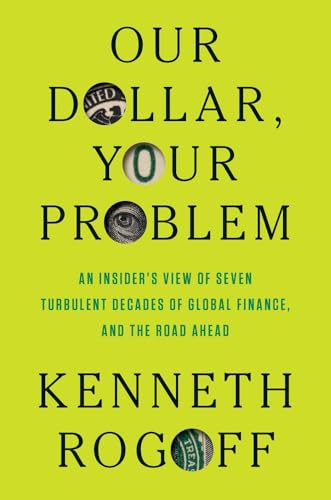
The Ascent of Money: A Financial History of the World
Book Description
Money shapes our world, wielding power like a double-edged sword. From ancient trade routes to modern banking crises, Niall Ferguson takes you on a whirlwind journey through the highs and lows of financial history. Discover how empires rose and fell, fortunes were made and lost, all dictated by the relentless forces of capital. The fabric of society is woven with threads of wealth and debt, and the stakes have never been higher. Can understanding the past illuminate the future of our economy, or are we doomed to repeat the same mistakes?
Quick Book Summary
"The Ascent of Money" by Niall Ferguson offers a sweeping exploration of the evolution of money and finance throughout human history. Ferguson charts how financial innovations—from the creation of credit and banking in Renaissance Italy to the modern complexities of derivatives and global finance—have profoundly shaped societies, empires, and individuals. The book illustrates how key financial concepts like risk, interest, and speculation have driven economic development, guided the fate of nations, and occasionally triggered spectacular crashes. Ferguson reveals that money is not merely an abstract economic tool, but a powerful force with moral, social, and political consequences. By understanding the victories and follies of our financial past, Ferguson posits, we may be better equipped to face future economic challenges and crises.
Summary of Key Ideas
Table of Contents
The Origins and Evolution of Money
Money, in its most basic form, began as a solution to the limitations of barter, making trade more efficient and societies more interconnected. Early civilizations like Mesopotamia developed primitive token systems that evolved into metal coinage, fundamentally altering economies and facilitating the growth of empires. Paper money, championed by the Chinese and spread through the Silk Road, enabled capital to become more portable and abstract, paving the way for more complex economies and larger political entities.
The Rise and Impact of Credit and Banking
The creation of credit and banking marked a turning point in financial history, first emerging in Renaissance Italy with the Medici family. Banking systems extended trust through credit, enabling economic expansion but also introducing new risks. Innovations such as bills of exchange, insurance, and joint-stock companies helped to spread and manage risk, fostering global trade and the rise of modern capitalism. However, dependence on credit would periodically lead to economic instability and crises.
Financial Markets, Risk, and Bubbles
Financial markets—where stocks, bonds, and commodities are traded—have been engines of both wealth creation and spectacular downfall. The Dutch tulip mania, the British South Sea Bubble, and later the Great Depression showcase how speculation and herd behavior can inflate asset prices to unsustainable levels. These episodes illustrate the double-edged nature of finance: the same mechanisms that build wealth can also precipitate ruin.
Finance and the Fate of Empires
Empires throughout history have risen and fallen in direct correlation with their financial acumen or folly. The Spanish Empire squandered its wealth from the Americas, while the British Empire harnessed finance to dominate global trade. Wars, revolutions, and regime changes are often as much about economic weakness as political strife. Ferguson argues that financial institutions and the prudent management of public debt are as critical to a nation's survival as its military strength.
Globalization and Financial Crises
In the modern era, globalization has interwoven national economies, amplifying both opportunities and vulnerabilities. The worldwide proliferation of financial products, derivatives, and large-scale banking networks has led to rapid growth but also new forms of risk. Recent crises—such as the 2008 financial meltdown—demonstrate how interconnected markets can transmit shocks globally. Ferguson concludes that understanding financial history is crucial: while finance holds immense potential for good, its dangers are undeniable, making vigilance and reform perpetual necessities.
Download This Summary
Get a free PDF of this summary instantly — no email required.





